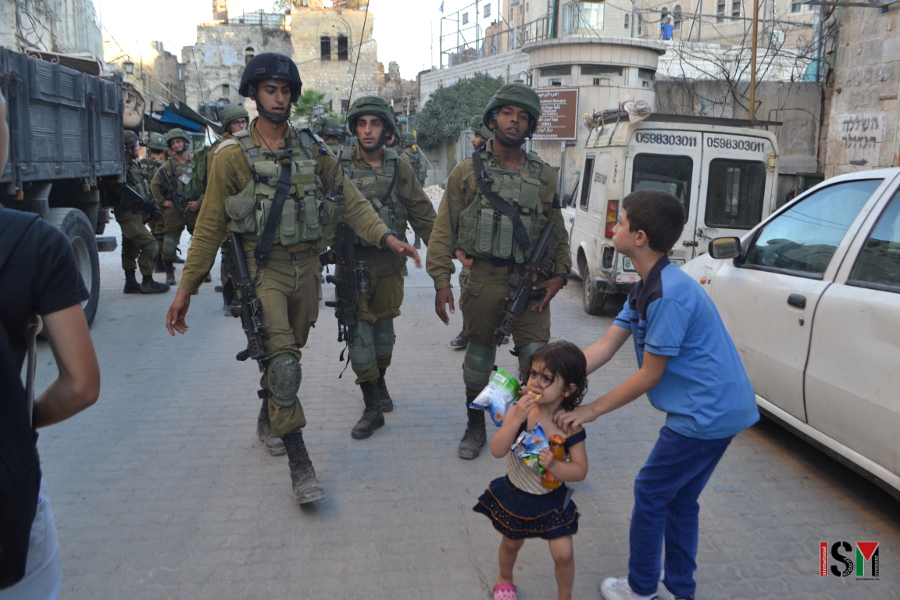Tag: Tear-Gas Canister
-
Three children arrested in occupied Hebron
23rd August 2017 | International Solidarity Movement, al-Khalil team | Hebron, occupied Palestine Three underage boys, 2 aged 13 and 1 aged 14, were arrested today in occupied Hebron (al-Khalil), the soldiers accusing them of throwing stones. Up to 40 soldiers went out of their military base in Bab al-Baladdbiya, and raided several houses searching…
-
Israeli forces repress Friday demonstration in Kafr Qaddum
6th August 2017 | International Solidarity Movement, Huwwara team | Kafr Qaddum, occupied Palestine On Friday 4th of August residents of Kafr Quaddum held their weekly demonstration against the closure of a road, once the main transport route from the community to Nablus. The weekly Friday demonstrations began on 1st July 2011. The closing of…
-
Israeli forces violently repress Al-Aqsa solidarity demonstration in al-Khalil (Hebron) [VIDEO]
30th July 2017 | International Solidarity Movement, Al-Khalil team | Hebron, occupied Palestine An Al-Aqsa solidarity march organized this Friday in occupied Hebron was heavily repressed by Israeli Forces. Soldiers and border police fired stun grenades, teargas, putrid-smelling “skunk” water, rubber-coated steel bullets and live ammunition at demonstrators, injuring many. Several young protesters were also…


![Israeli forces violently repress Al-Aqsa solidarity demonstration in al-Khalil (Hebron) [VIDEO]](https://palsolidarity.org/wp-content/uploads/2017/07/IMG_8019.jpg)